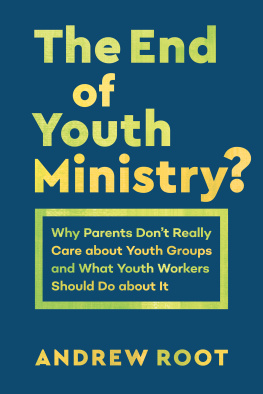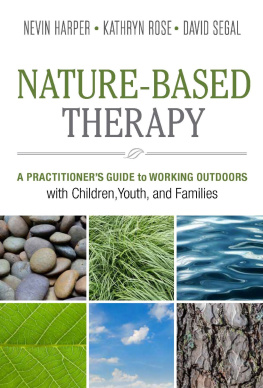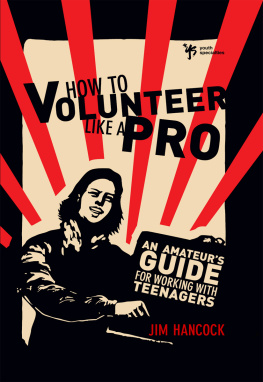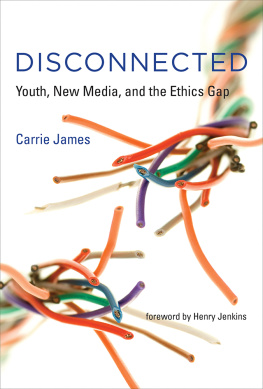Howard Sercombe 2010
First published 2010
Apart from any fair dealing for the purposes of research or private study, or criticism or review, as permitted under the Copyright, Designs and Patents Act, 1988, this publication may be reproduced, stored or transmitted in any form, or by any means, only with the prior permission in writing of the publishers, or in the case of reprographic reproduction, in accordance with the terms of licences issued by the Copyright Licensing Agency. Enquiries concerning reproduction outside those terms should be sent to the publishers.
SAGE Publications Ltd
1 Olivers Yard
55 City Road
London EC1Y 1SP
SAGE Publications Inc.
2455 Teller Road
Thousand Oaks, California 91320
SAGE Publications India Pvt Ltd
B 1/I 1 Mohan Cooperative Industrial Area
Mathura Road
New Delhi 110 044
SAGE Publications Asia-Pacific Pte Ltd
33 Pekin Street #02-01
Far East Square
Singapore 048763
Library of Congress Control Number: 2009931922
British Library Cataloguing in Publication data
A catalogue record for this book is available from the British Library
ISBN 978-1-84787-603-4
ISBN 978-1-84787-604-1 (pbk)
Typeset by C&M Digitals (P) Ltd, Chennai, India
Printed and bound Great Britain by TJ International Ltd, Padstow, Cornwall
Printed on paper from sustainable resources
This book is dedicated to Helen Wolfenden. Her support and encouragement has been unstinting, and there have been many times where she has carried the load of life outside the book while I buried myself in it. Her passion for truth and her unerring nose for inauthenticity and self-deception, so important in my own journey, might also mean that this book contains fewer hypocrisies than it otherwise would.
INTRODUCTION
The intention of this book is to engage in a conversation about the core ethics of youth work as a profession. It isnt the first conversation about this: for youth workers, the ethical dimension is never far from the surface (Young 2006, Sapin 2009). All the things that youth work claims to do and to be for young people are about the ethics of the situation. Social justice is an ethical requirement. Empowerment is an ethical project. Inclusion is ethically driven. Poverty, homelessness, violence, destructive drug use, dispossession these arent technical problems, awaiting the skill and resource to fix them. They are deeply moral issues. To use that most unfashionable of words, their continued existence, and the structures that maintain them, are wrong. The reason that many of us got into youth work, and the reason we stayed, is because of that.
But these conversations havent always happened overtly within an ethics framework. Over the last few years there have been stronger attempts to be more consistent in our thinking, and to connect our thinking to wider conversations about ethics as a philosophical discipline, especially in the field of professional ethics (see Banks 1999, Roberts 2009). And to work harder to develop shared, articulate positions on common ethical questions.
There is a wide range of perspectives on the relationship between a practice and its ethics. Much of this work, building on Ernest Greenwoods classic essay (1957), identified the professions by a list of attributes, with ethics one attribute among many (such as formal training, a licence to practise, processes for registration and deregistration). However, in a pivotal piece of scholarship published in 1994, Daryl Koehn argued that ethics is not one of several attributes of the professions. Ethics is the core, it is what makes a profession a profession.
This position changes our understanding of ethics and the professions. From this perspective, ethics is not primarily about prohibition, about lists of things one should not do. It is about identity, what we claim, what constitutes us. The essence of youth work is its ethics.
While this book is grounded in youth work practice, it also takes theory seriously. The theory has mostly come from the discipline of moral philosophy. The issues that moral philosophers are interested in are often frustratingly distant from the day-to-day practice of youth workers, but the theoretical thinking is, and continues to be, useful. That is where I have gone to find the kind of disciplined language that will work for youth work, that will sharpen and strengthen our thinking, and that will call us out when we are kidding ourselves.
). Youth workers (particularly in the UK) are typically put off by connotations of inferiority or condescension that they feel in the word, and there are good reasons for that, particularly in the history of the helping professions. Well try to work with that and other similar problems as the argument progresses. However, readers will find in this book a struggle for precision in what words like that mean, rather than whether they are popular or not.
The book also tries to be international, engaging with the ethics of practice at least across the UK (and England, Wales, Scotland and Northern Ireland all have their differences), Australia and New Zealand as well as North America. Each of these has its own way of thinking about youth work, and its own languages for talking about practice, and there are distinct sensitivities in each. In each context, youth workers are responding to and being shaped by different funding and policy agendas, which themselves change continuously. Some I understand better than others. But while the way that youth workers talk about their practice can be very different across the planet and across time, the way their practice feels, the way it smells if you like, is congruent.
I try to engage with that core, though readers may find that the language is not immediately familiar or conventional or aligned with current policy where they are. Where I can, I try to avoid jargon, to speak directly and simply, or to use concepts that belong to no particular setting at the moment but might be useful across settings. Youth work has been around for 150 years (Davies 1999): a book like this needs to still be relevant when governments, policy settings and priorities have changed, as they do so often.
The book is set out in three sections. explores the idea of a profession, and the place of youth work among the professions. The conversation is important because it establishes not only what we do but what we are. Zygmunt Bauman (1992) argues that truth in the (post) modern world is established by our own commitment to it. The ethical claims of youth work then become real and true because collectively we affirm, assert and commit ourselves to those ethical objectives.
mines the body of philosophical writing about ethics, covering method and theory in thinking about ethics. The major schools of thinking are canvassed (though all too briefly and with many variations left out) along with their strengths and weaknesses. Each of them has attempted at various points in history to assert itself as the one truth about ethics. I have my own preferences, as you will discover, but theory is a conceptual toolbox to break open situations, work them out, and work out what is to be done, not a set of divine and unalterable pronouncements. Different situations call for different tools, and, as much as we can, I want to keep the dialogue open between these very different approaches to working out what is important and what ought to be done. The role and utility of Codes of Ethics in shaping professional practice is part of that conversation.







